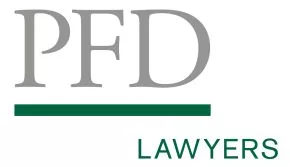Certain couples after spending years trying unsuccessfully to have a child, will eventually have recourse to a surrogate—often a friend—to help them fulfill their dream.
Under the Civil Code of Québec, a contract with a surrogate, regardless of whether she receives payment, is null, meaning that the contract is deemed never to have existed. In addition, payment for surrogacy constitutes a criminal offence punishable under the Assisted Human Reproduction Act, which provides for a fine of up to $500 000.
Under Quebec law, a contract with a surrogate cannot be enforced, as it would imply compelling her to give her child up for adoption. However, the courts now recognize the legality of a signature consenting to the adoption of a child born as a result of an agreement between a couple and a surrogate undertaken in good faith and in accordance with the law where it is in the best interest of the child.
The Civil Code of Québec expressly states that children whose filiation is established have the same rights and obligations, regardless of the circumstances of their birth.
Indeed, the Court of Appeal of Québec was called upon to rule in two cases: first, in Adoption 1445, 2014 QCCA 1162 on the validity of the consent of a biological mother (surrogate) to allow the intended mother to adopt her child. This particular case involved an infertile couple who had recourse to an egg donor and a friend to carry the child. The couple reimbursed both women for the costs they incurred but did not provide any financial compensation. The surrogate and the father signed their consent so the intended mother—the father's spouse—could adopt the child. The Court recognized the validity of the consent for adoption since it was signed in compliance with the provisions set out in the Civil Code of Québec and since it was in the best interest of the child to grant the order of placement for adoption.
More recently, in Adoption 161, 2016 QCCA 16, a surrogate chose not to sign her child's declaration of birth. The biological father completed the form and indicated that the mother was undeclared. The Court of Appeal concluded that the mother's choice to not establish filiation with the child was in compliance with the provisions in the Civil Code of Québec. The application for an order of placement for adoption was signed only by the biological father to consent to the child's adoption by his spouse. The Court confirmed that the process was legal and granted the adoption.
It is important to remember that the Courts do not take the issuing of an order of placement for adoption lightly. Still, the Court of Appeal ruled and reiterated that a custody order for adoption is the least unsatisfactory solution and the option which best serves the interest of the child, who will benefit from full filiation in keeping with the reality of his or her family.
In fact, on June 8, 2015, the Comité consultatif sur le droit de la famille submitted a report recommending that parental projects involving a surrogate be recognized and that the legal consequences of these projects be specifically addressed.
While there is no bill currently tabled before the National Assembly on this matter, it is likely a matter of time before the Québec government begins a reform of family law, which has not been revised since 1980. The social debate surrounding surrogacy is far from over in view of the numerous ethical issues raised which confront opposing values and principles, and the Quebec legislature will most likely have to address these issues sooner rather than later.
About Mackrell International - Canada - Prévost Fortin D'Aoust is a Quebec based business law firm with offices in Montreal, Saint-Jérôme, Boisbriand, Sainte-Agathe-des-Monts and Laval, and a member of Mackrell International. Mackrell International - Canada is comprised of four independent law firms in Alberta, British Columbia, Ontario and Quebec. Each firm is regionally based and well-connected in our communities, an advantage shared with our clients. With close relations amongst our Canadian member firms, we are committed to working with clients who have legal needs in multiple jurisdictions within Canada.
This article is intended to be an overview and is for informational purposes only.


